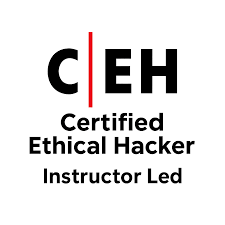Palo Alto Training – Learn Palo Alto Firewalls in 2025

In a world where cyberattacks grow more sophisticated by the day, securing digital infrastructure is no longer optional—it’s essential. Check Point Software Technologies stands at the forefront of global cybersecurity, offering a robust suite of solutions designed to protect enterprises, governments, and cloud environments from the ever-expanding threat landscape. Founded in 1993 and headquartered in […]

In a world where cyberattacks grow more sophisticated by the day, securing digital infrastructure is no longer optional—it’s essential. Check Point Software Technologies stands at the forefront of global cybersecurity, offering a robust suite of solutions designed to protect enterprises, governments, and cloud environments from the ever-expanding threat landscape.
Founded in 1993 and headquartered in Tel Aviv, Israel, Check Point is one of the earliest pioneers in firewall technology. Over the years, it has grown into a comprehensive cybersecurity platform provider, helping organizations manage risks across networks, endpoints, mobile devices, cloud assets, and IoT.
This article offers a deep dive into Check Point’s history, product ecosystem, key features, and why it remains a go-to choice for businesses worldwide.
Check Point introduced the first stateful inspection firewall in the early 90s—changing how organizations defended their networks. Since then, the company has evolved significantly, keeping pace with new threats like ransomware, phishing, and zero-day attacks.
Today, Check Point’s platform protects more than 100,000 organizations across 88 countries, providing enterprise-grade security solutions and intelligence-driven threat prevention.
Check Point’s solutions are designed around a consolidated, multi-layered approach to security. The main pillars of its architecture include:
The Quantum series delivers advanced threat prevention at the network edge with next-generation firewall capabilities. Features include:
The Harmony suite offers protection for:
With the growing shift to cloud services, Check Point’s CloudGuard platform protects public, private, hybrid, and multi-cloud environments. Supported platforms include:
Infinity-Vision is a cloud-native security operations platform that offers:
This central dashboard connects all Check Point products, streamlining policy enforcement and threat investigation.
While many cybersecurity solutions focus on detection and response, Check Point emphasizes proactive threat prevention. Their ThreatCloud AI engine blocks attacks before they reach the network, devices, or users.
ThreatCloud is Check Point’s collaborative intelligence database, leveraging insights from over 100 million sensors, global research centers, and AI engines. It delivers real-time updates to stop zero-day threats.
Check Point’s Quantum gateways scale from branch offices to data centers and are also available as virtual appliances, cloud-native instances, and rugged industrial devices.
Check Point integrates easily with SIEM, SOAR, EDR, and cloud-native DevOps tools. It supports small businesses and global enterprises alike, ensuring flexible deployment across environments.
Companies use Quantum Gateways to create secure network perimeters and segmented internal zones. With advanced URL filtering, antivirus, and DDoS protections, these firewalls stop both known and unknown threats.
Organizations moving to AWS or Azure rely on CloudGuard for visibility, compliance enforcement, and protection of virtual machines, containers, and serverless workloads.
Harmony Connect provides Zero Trust Network Access (ZTNA), enabling secure remote connections without VPNs. It also includes remote browser isolation, phishing protection, and secure web gateways.
Check Point provides out-of-the-box templates and tools for regulatory frameworks like GDPR, HIPAA, PCI-DSS, and NIST, helping organizations monitor and report on compliance postures.
Check Point has consistently been recognized by industry analysts:
Check Point partners with a wide array of technology vendors including:
These integrations allow security teams to automate workflows, improve visibility, and share threat intelligence across platforms.
Check Point makes it easy to manage security at scale:
Security policies can be replicated, version-controlled, and rolled back, giving enterprises flexibility and control.
Check Point continues to innovate with a focus on AI-powered prevention, cloud-native development, and integrated threat response. Their roadmap includes deeper automation, enhanced user risk profiling, and more tools for DevSecOps teams.
With hybrid and cloud-first IT environments becoming the norm, Check Point is positioning itself as a leader in securing the modern digital ecosystem—from networks and endpoints to multi-cloud infrastructure and mobile devices.
To learn more about Check Point’s full solution portfolio, visit:
Check Point is more than just a firewall company—it’s a full-spectrum cybersecurity vendor that delivers holistic, intelligent, and scalable protection for today’s dynamic IT environments. With a powerful combination of advanced threat prevention, centralized management, and seamless cloud integration, Check Point gives organizations the tools they need to stay ahead of evolving cyber threats.
Whether you’re a small business or a multinational enterprise, Check Point offers the technology and expertise to protect your assets, users, and data—no matter where they live.
Get certified with industry-leading cybersecurity certifications from EC-Council, PECB, Palo Alto Networks, and more.

Learn from world-class instructors Collaborate with top professionals Advanced training...

The CEH is the world's leading cybersecurity certification, recognized by...

Onsite training course Led by an instructor Interactive sessions

Asynchronous, self-study environment Video-streaming format Flexible learning schedule
Adding {{itemName}} to cart
Added {{itemName}} to cart

